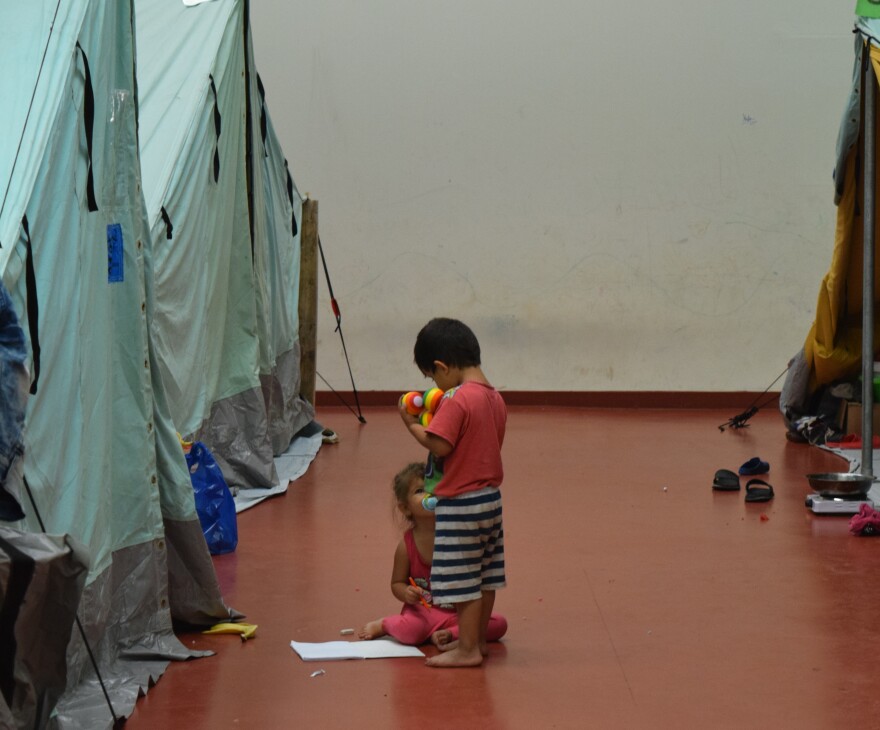
no one leaves home unless
home is the mouth of a shark
you only run for the border
when you see the whole city running as well
your neighbors running faster than you
breath bloody in their throats
the boy you went to school with
who kissed you dizzy behind the old tin factory
is holding a gun bigger than his body
you only leave home
when home won’t let you stay.
Anjali Alwis is a Syracuse University graduate who spent two weeks working in a refuge camp in Thessaloniki, Greece. She went on a medical mission with SAMS, the Syrian American Medical Society, and was able to interview camp residents, volunteers, and doctors while there. She put together this six-part piece which details the arduous and challenging journey that refugees have to face in their search for safety.
There are about 50 thousand refugees in Greece alone. They live in abandoned warehouses in remote areas of the country. The camps are run by the Greek military who protect the camp and provide three meals a day. Each refugee family gets a tent about 10 x 10 in size. Everything they own is in that tent. Some camps have a school for the children. People are free to leave the camp but without a car or money there is very little they can do.

The people are strong; some of the most resilient I've met in my life, capable of crossing countries under attack and threat, carrying small children through long miles and dangerous boat rides. People that have seen more and done more than most will see or do in a lifetime... And now they are in Greece, so close to the end... And everyone is forced to simply wait.
But before the war, most people were happy in Syria.
Abdulazez Dukhan is an 18 year old boy from Homs, Syria. He has an easy smile, a contagious laugh, and is an absolutely brilliant artist. I met Abdulazez when he was working as a translator for SAMS, the Syrian American Medical Society, which provides medical care in the camps. However, he was introduced to me as an artist and photographer with his own popular facebook page, Through Refugee Eyes. He lived many different places in his short 18 years; after the war started his home was not safe anymore and his family had to flee, first to the remote countryside, then out of the country.
“It is the worst thing to feel like you are a refugee, from your beginning. For me, it was the revolution. It started when I was in middle school”, said Abdulazez.
Just like Abdulazez, Nasreen watched her home and city crumble in front of her eyes. Nasreen is a Kurdish woman from Qamishli, Syria. She had a great life in her hometown; she and her husband would come home from work, go grocery shopping and make dinner, then help the kids with homework. Sometimes they’d do something fun – a picnic or maybe a park.
When the crisis started, the whole city was destroyed. The area they were in was very heavily militarized and they prayed for the bombing to stop for even five minutes so that they could sleep. It never did. The kids had to be taken out of school because it became too dangerous to go. The military would do raids of people’s homes and pull them out of bed in the middle of the night. They were not seen again.
Nasreen said, “had it not been for God, we would have been dead too.”
One day, Nasreen got a call to evacuate the city. They were told they had half an hour and anyone found afterwards would be killed. They just ran .






